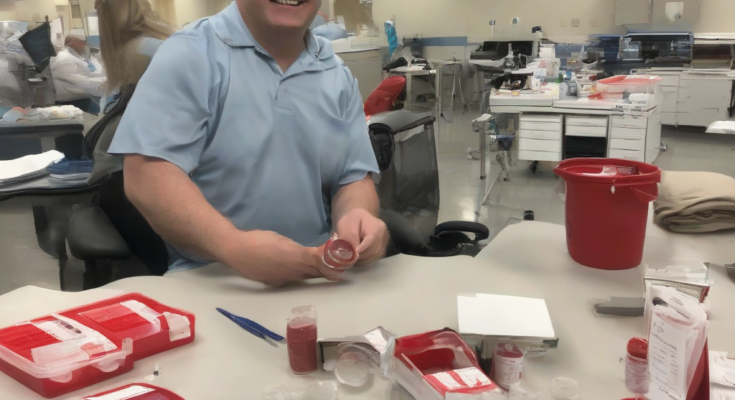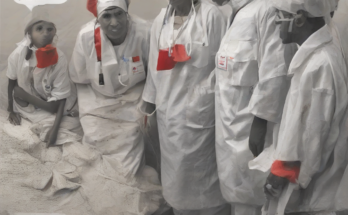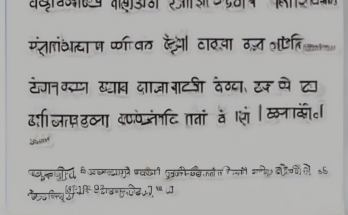Saving Lives, One Pint at a Time: Your Guide to Blood Donation in Baton Rouge
Baton Rouge, a vibrant city with a strong sense of community, offers numerous opportunities for residents to contribute to the well-being of others. Among the most impactful ways to give back is through blood donation. The need for blood is constant, and your contribution can make a life-altering difference. This comprehensive guide will equip you with all the information you need to become a blood donor in Baton Rouge, from eligibility criteria to finding donation centers and understanding the process.
Understanding the Need for Blood in Baton Rouge
The demand for blood in Baton Rouge, like in any major city, is significant and ongoing. Hospitals and medical facilities rely on a steady supply of blood to treat a wide range of medical conditions, including:
- Trauma victims involved in accidents
- Patients undergoing surgeries
- Individuals battling cancer and other chronic illnesses
- New mothers experiencing complications during childbirth
- People with blood disorders requiring regular transfusions
Blood has a limited shelf life, meaning that regular donations are essential to maintain an adequate supply. Even a single donation can save multiple lives, making your contribution incredibly valuable.
Eligibility Requirements for Blood Donation
To ensure the safety and efficacy of blood transfusions, potential donors must meet certain eligibility criteria. These guidelines are in place to protect both the donor and the recipient. Here are some key requirements:
- Age: Generally, donors must be at least 16 years old (with parental consent if under 18). Upper age limits may vary depending on the blood bank.
- Weight: A minimum weight requirement is usually in place, typically around 110 pounds. This ensures there is enough blood to safely donate.
- Health: Donors must be in good general health. Individuals with certain illnesses, such as active infections, may be temporarily or permanently ineligible.
- Medications: Some medications can affect eligibility, so it’s crucial to disclose any medications you are taking.
- Travel History: Recent travel to certain regions may impact eligibility due to potential exposure to infectious diseases.
- Iron Levels: Sufficient iron levels are necessary for safe blood donation.
It’s recommended to check with your chosen blood donation center for the most up-to-date and specific eligibility criteria before your donation appointment. Many centers have online questionnaires to pre-screen potential donors.
Finding Blood Donation Centers in Baton Rouge
Baton Rouge has several reputable blood donation centers and mobile drives, making it convenient to find a location that suits your schedule and needs. Some of the primary organizations involved in blood collection in the area include:
- The Blood Center: A major regional blood bank serving Baton Rouge and surrounding areas. They often host regular blood drives at various locations throughout the city.
- American Red Cross: The American Red Cross conducts numerous blood drives in Baton Rouge, often partnering with local businesses, organizations, and community centers.
- Local Hospitals: Many hospitals in Baton Rouge have their own blood donation programs or partner with blood banks to ensure a consistent supply.
To find the nearest blood drive or donation center, you can use online search engines, check the websites of the organizations listed above, or contact your local hospital.
The Blood Donation Process: What to Expect
The blood donation process is generally straightforward and well-managed by trained professionals. Here’s a typical overview:
- Registration and Screening: Upon arrival, you’ll register and complete a brief health questionnaire and provide some basic information.
- Mini-Physical: A brief health check, including taking your blood pressure, pulse, temperature, and hemoglobin level, will be conducted.
- Blood Draw: Once you’re cleared, you’ll be seated comfortably while a trained phlebotomist collects your blood. The needle is quite small, and the process is usually painless.
- Post-Donation Care: After donating, you’ll be asked to relax for a few minutes while having refreshments and monitoring your blood pressure. Light snacks and drinks are usually provided.
- Post-Donation Instructions: You’ll receive instructions on post-donation care, including recommendations for hydration and avoiding strenuous activities for a short period.
The entire process typically takes between 45 minutes to an hour. The actual blood donation itself only takes about 8-10 minutes.
Benefits of Blood Donation
Donating blood not only saves lives but also offers several personal benefits:
- The Feeling of Giving Back: The most rewarding aspect is knowing you’ve made a significant contribution to your community and potentially saved lives.
- Free Health Screening: The mini-physical received during the donation process provides a valuable health check, including blood pressure, pulse, and hemoglobin levels.
- Reduced Risk of Certain Diseases: Studies suggest regular blood donation may help reduce the risk of certain diseases.
- Improved Iron Levels: For individuals with elevated iron levels, donating blood can help bring them to a healthy range.
- Sense of Community: Joining the ranks of blood donors connects you to a network of individuals committed to helping others.
Addressing Common Concerns About Blood Donation
Some people hesitate to donate blood due to common misconceptions or anxieties. Let’s address some frequently asked questions:
- Is it painful? The needle prick is usually minimal and short-lived. Most donors describe the experience as only slightly uncomfortable.
- Will I feel weak afterward? Some mild dizziness or fatigue is possible, but this usually subsides quickly with proper hydration and rest.
- How much blood is taken? A typical donation is about one pint (approximately 450ml) of blood.
- How long does it take to recover? Most donors feel back to normal within a few hours. It’s important to stay hydrated and avoid strenuous activities for a few hours after the donation.
- Can I donate if I have tattoos or piercings? Eligibility guidelines regarding tattoos and piercings vary depending on the blood bank and the time elapsed since the procedure. Check with your chosen donation center for clarification.
Planning Your Blood Donation in Baton Rouge
To make your blood donation experience smooth and efficient, consider these steps:
- Check Eligibility: Use online questionnaires or contact the blood bank to ensure you meet all the necessary requirements.
- Schedule an Appointment: Many blood donation centers prefer appointments to manage their workflow efficiently. Scheduling in advance ensures a smooth and less time-consuming experience.
- Eat a Nutritious Meal: Donating blood requires energy, so make sure to eat a well-balanced meal before your appointment. Avoid fatty foods as they can interfere with the testing process.
- Stay Hydrated: Drink plenty of fluids before and after your donation to help with recovery.
- Bring Identification: You’ll need a valid photo ID to register.
Beyond the Donation: Continuing to Support Blood Drives
Donating blood is a powerful act of kindness, but you can further support the cause through other means:
- Volunteer at Blood Drives: Help organize and assist at blood drives in your community.
- Spread Awareness: Encourage friends, family, and colleagues to become regular blood donors.
- Donate to Blood Banks: Financial contributions support operational costs and help maintain vital blood supplies.
- Host a Blood Drive: Organize a blood drive at your workplace, school, or community center.
In conclusion, blood donation is a simple yet profoundly impactful way to give back to your community in Baton Rouge. By understanding the process, eligibility criteria, and the importance of regular donations, you can become a valuable contributor to saving lives and strengthening the community’s well-being.



